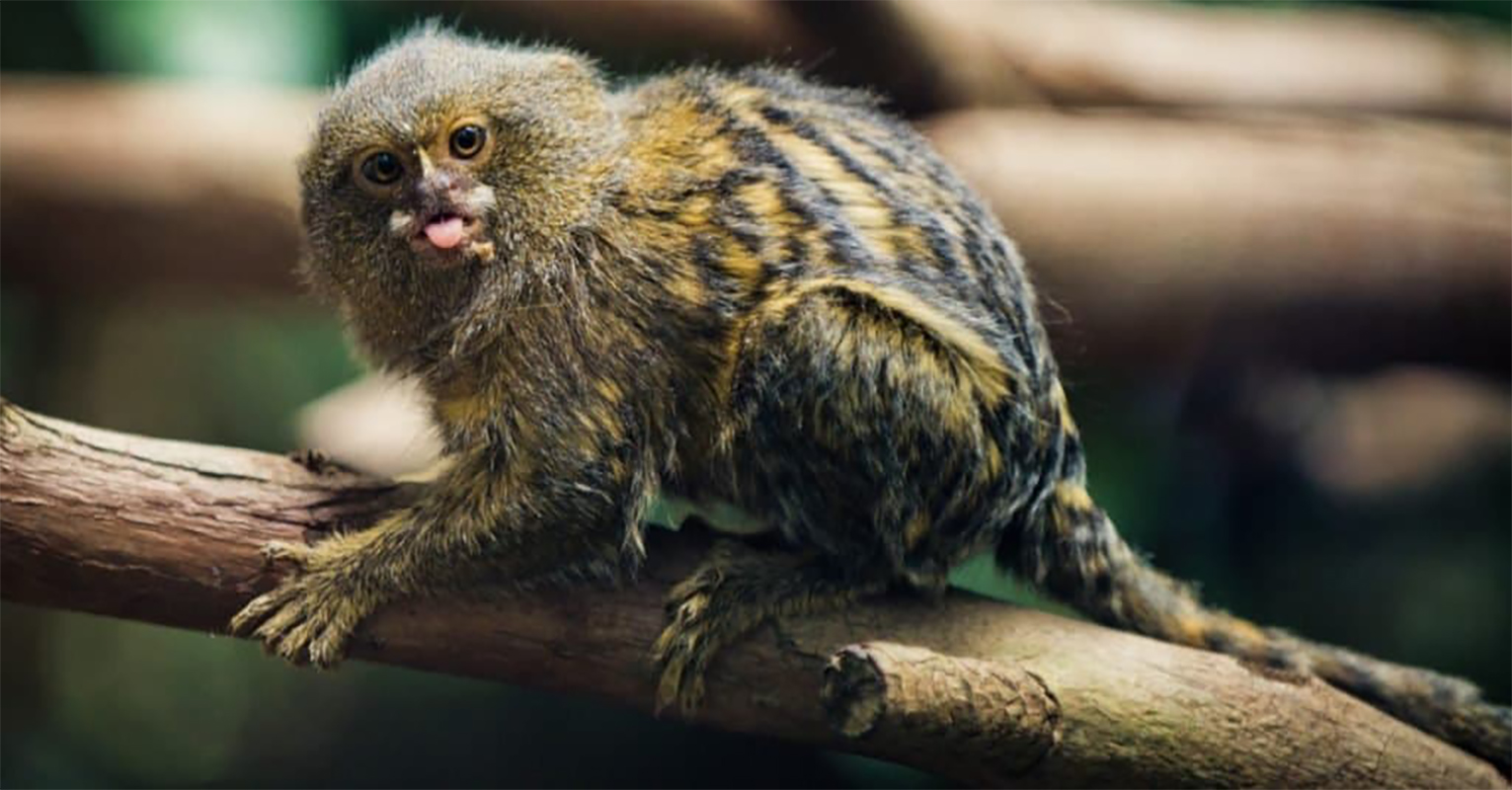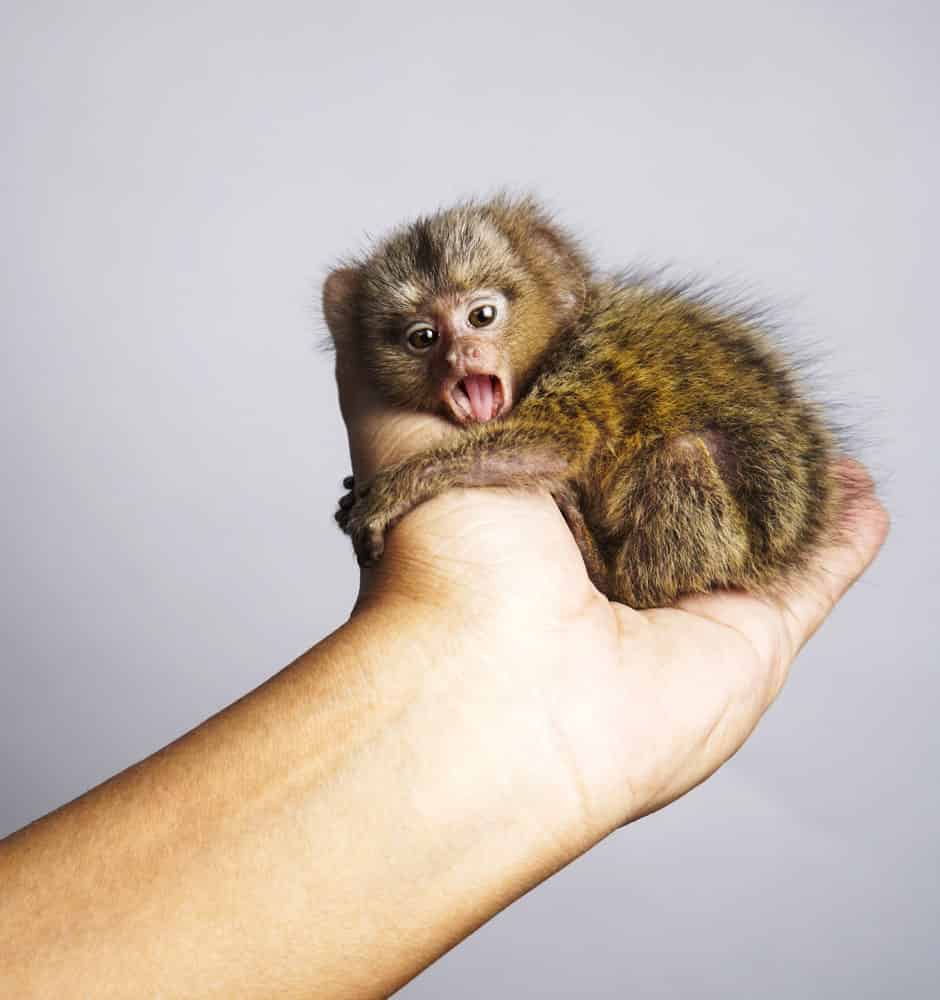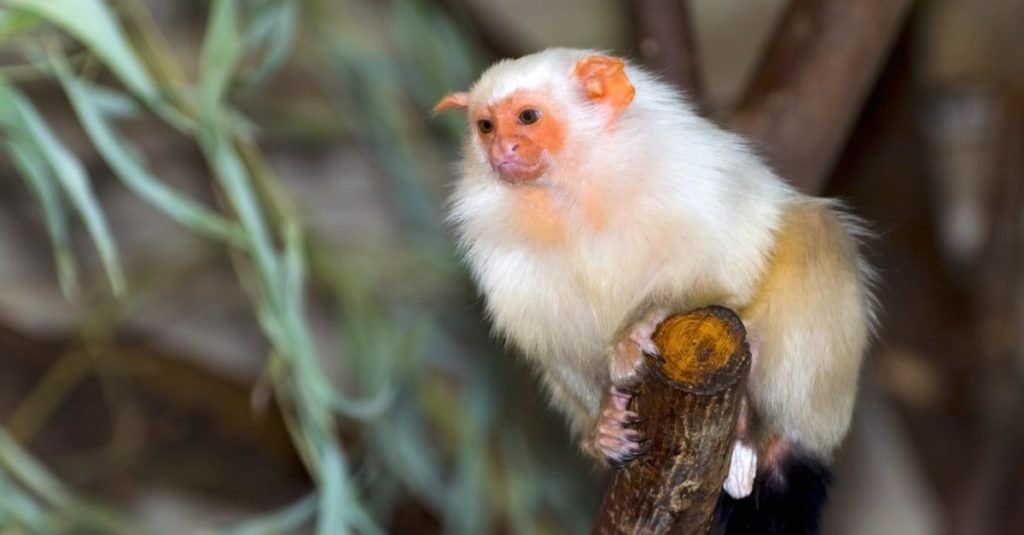
Do Finger Monkeys Make Good Pets?
While having a controversial pet is popular, keeping wild animals in your home is never a good idea. However, there are no federal restrictions against keeping exotic pets, so many states don’t have laws against it. As a result, finger monkeys have recently started trending among exotic pet owners. These tiny primates are native to Colombia, Peru, Ecuador, and Brazil.
Finger Monkeys Explained

Their babies are tiny, and they cling to people’s fingers in captivity, hence the nicknamefinger monkey
While extremely small, Finger monkeys are real monkeys and not some man-made hybrid. These cuties are one of the smallest primates in the world and the smallest species of monkey. Additionally, their common name is the pygmy marmoset. Like their larger cousins, they live in South American rainforests, primarily in high treetops. These tiny monkeys only grow 4.5 to 6.2 inches long, tail excluded. Their tails are longer than their bodies, ranging between 6.9 and 9 inches. Female finger monkeys are slightly bigger than males, with an average weight of 4 ounces.
Their babies are tiny, and they cling to people’s fingers in captivity, hence the nickname finger monkey. Other names for these tiny primates are pocket monkeys, thumb monkeys, and little lions because of the tufts of fur around their face that resemble a lion‘s mane. While finger monkeys aren’t listed as endangered, their population is facing habitat destruction. However, they are very adaptable, which will aid them in their fight for survival.
Do Finger Monkeys Make Good Pets?
It’s not easy to obtain and care for finger monkeys; there is a lot to consider before getting one. For example, you must check if your state allows residents to keep primates in their homes, as it’s illegal in some states. In fact, the entire District of Columbia and half of the USA’s 50 states outright prohibit private ownership of primates. However, if they do, there are usually exemptions, licenses, or permits involved.
Finger monkeys gained popularity in the USA because of their tiny size and adorable features. But what most people don’t understand is they are still wild animals with natural instincts. For example, in the wild, they use their long teeth to break off tree bark for the food underneath, so you can only imagine how painful their bite is. Furthermore, they are terrible with children and other animals. Males are particularly aggressive, especially once they reach sexual maturity, and just like other primates, they will fling their feces when they lose their temper.
Cons of Owning Finger Monkeys
Because these tiny marmosets are not domesticated, they find it hard to adjust to captive living and won’t accept your dogs or cats. As a result, finger monkeys often fall into depression due to boredom or anxiety. This behavior is not good as they are already aggressive, and depression will only make it worse. And if you think they are too small to cause any harm, think again. When angry, they can become quite destructive. For example, they can scratch and bite you or other people in your home, destroying furniture, curtains, rugs, and much more.
Another con is you can’t just get one of these monkeys. Pygmy marmosets live in groups, so you need at least two to keep them happy. Unfortunately, many people don’t know this rule and only get one. But, when it starts to act out because of depression, owners don’t know what to do and often return them.
Lastly, finger monkeys are susceptible to several human diseases. They can get chicken pox, common colds, and even HIV. So, if they are sickly, the bills can rack up.
Behavior In the Wild
Finger monkeys lead very social lives in the wild. Their groups usually consist of a male, a female, and their babies. However, the size of their group varies between two to 10 individuals. These monkeys generally mate for life, but sometimes the pair introduce another male to help look after their offspring.



